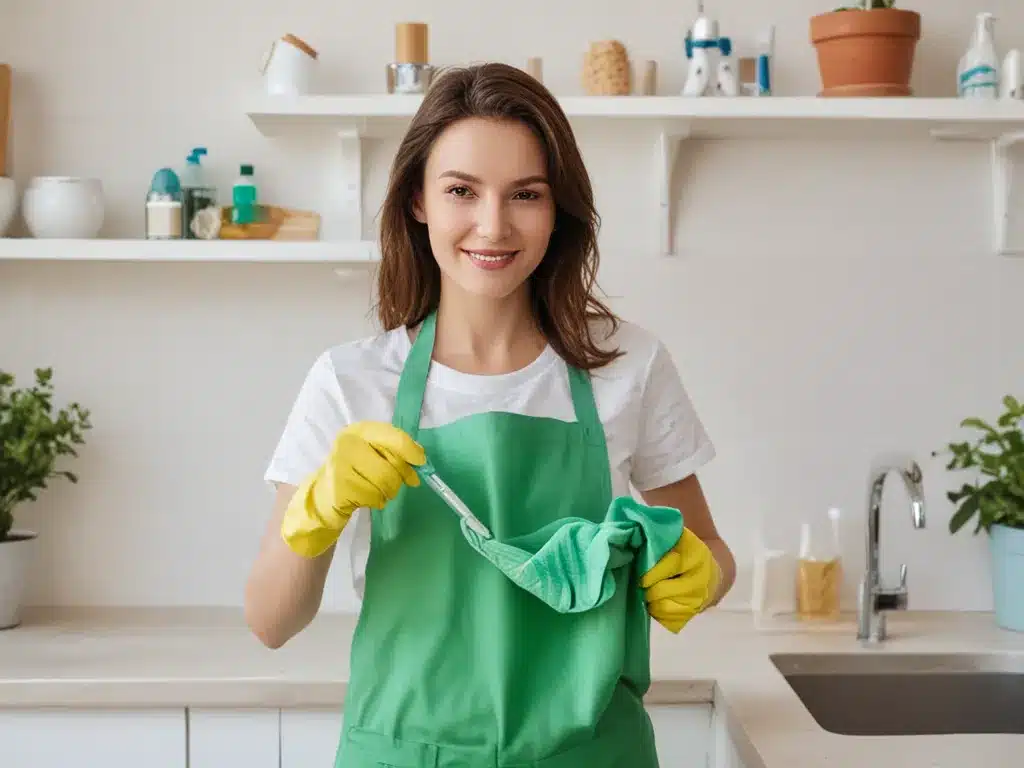Why Choose Eco-Friendly Cleaning Products
Switching to eco-friendly cleaning products is one of the easiest ways to reduce waste and exposure to harmful chemicals in my home. Here’s why I choose eco-friendly cleaning products:
-
Less plastic waste. Many eco-friendly cleaners come in reusable or recyclable packaging, reducing reliance on single-use plastics. This cuts down on plastic waste ending up in landfills or oceans.
-
Safer ingredients. Conventional cleaners often contain chemicals like ammonia, bleach, synthetic fragrances, and preservatives. Eco-friendly cleaners use plant-derived ingredients that are biodegradable and gentler on my health.
-
Better for the environment. Eco-friendly cleaning ingredients break down quickly and don’t persist in waterways or soil. Many are plant-derived, renewable ingredients. This makes them more sustainable than petroleum-based chemicals.
-
Cost savings. Although some eco-cleaners may cost more upfront, I save money by making my own cleaners using a few simple versatile ingredients like vinegar, baking soda, and castile soap. Concentrated cleaners also last longer.
Swapping Out Conventional Cleaning Products
Making the switch to eco-friendly cleaning doesn’t mean I have to replace everything at once. I started by picking my most-used cleaners and finding greener alternatives:
-
For all-purpose cleaner, I make a simple solution of 1 part vinegar, 1 part water, and a few drops of essential oil. White vinegar disinfects while essential oils add a fresh scent.
-
Instead of bleach, I use hydrogen peroxide, borax, or vinegar to brighten clothes and disinfect surfaces. They get the job done without harsh fumes.
-
For glass/window cleaner, I mix equal parts vinegar and water in a spray bottle. Vinegar cuts through dirt and leaves a streak-free shine.
-
Baking soda works wonders as a gentle scouring powder for tubs, sinks, and countertops. For tougher scrubbing jobs, Bon Ami is a non-toxic option.
-
My homemade dishwasher detergent combines washing soda, Borax, and essential oils. Washing soda cuts grease while Borax provides water softening.
DIY Cleaning Recipes
With just a few ingredients like vinegar, baking soda, Castile soap, and essential oils, I can make safe, effective cleaners for my whole home:
All-Purpose Cleaner
- 1 cup water
- 1⁄4 cup vinegar
- 15-20 drops essential oil
Mix ingredients in a spray bottle. Use on countertops, appliances, mirrors, and other surfaces.
Foaming Hand Soap
- 1⁄2 cup Castile soap
- 1⁄2 cup water
- 8-10 drops essential oil
Whisk soap and water until frothy. Add oil and transfer to a foaming dispenser. Customize scents with different oils.
Oven Cleaner
- 1⁄2 cup baking soda
- 1⁄4 cup salt
- 1⁄4 cup water
Mix ingredients to form a spreadable paste. Apply to oven surfaces and let sit overnight before wiping clean. No harsh fumes!
Developing Eco-Friendly Cleaning Habits
Once I had the right products, developing new habits was easy:
-
I eliminated antibacterial products with triclosan. Regular cleaning with soap and water removes germs effectively without chemical residues.
-
I switched paper towels to reusable rags and towels. These cut waste while remaining highly functional for cleaning tasks.
-
I use only what I need and make concentrated cleaners last longer. A little vinegar, hydrogen peroxide, or Castile soap goes a long way.
-
For spot treatment, I use simple mixtures like baking soda and water to scrub out stains. No need for spray cleaners full of mystery ingredients.
-
I check labels and do research before buying new products. I look for plant-based, non-toxic ingredients from brands with a green mission.
The transition took some effort initially, but now eco-friendly cleaning is second nature. With better products and habits, I’m keeping toxic chemicals out of my home and reducing my environmental footprint.







